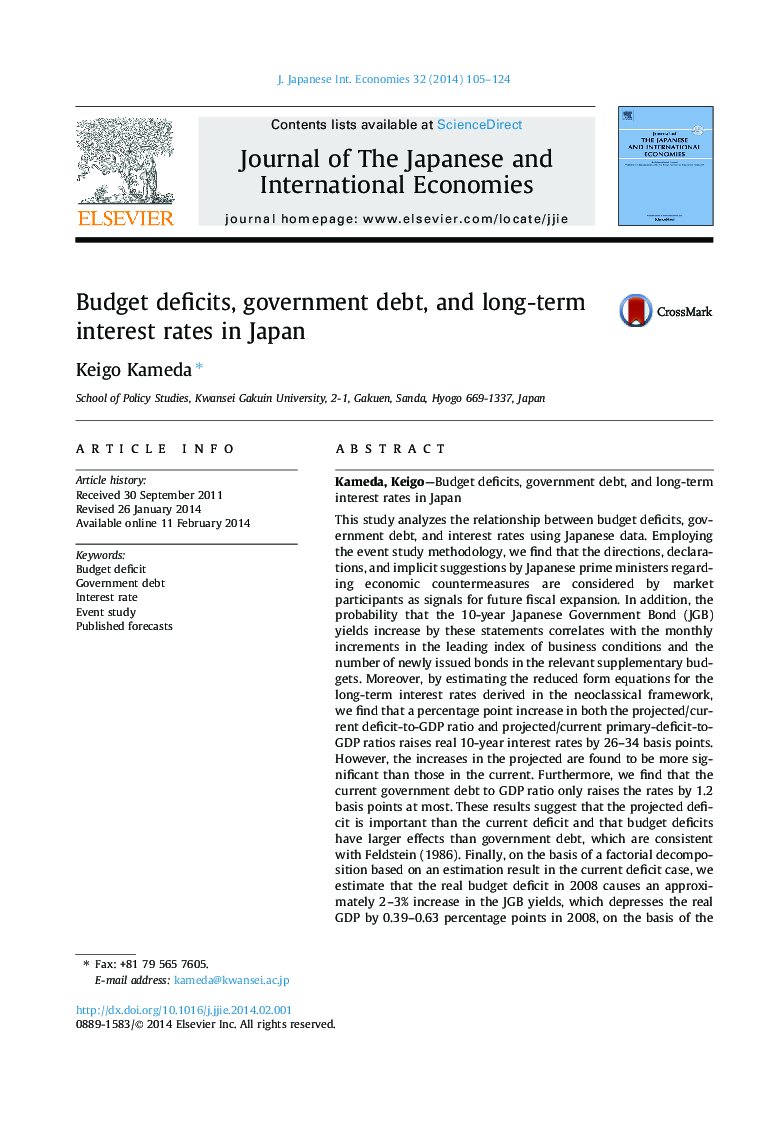| Article ID | Journal | Published Year | Pages | File Type |
|---|---|---|---|---|
| 964910 | Journal of the Japanese and International Economies | 2014 | 20 Pages |
•We examined Japan’s fiscal condition with regard to 10-year government bond yields.•Event studies showed that yields responded positively to economic countermeasures.•We regressed budget deficits/GDP and government debt/GDP ratios on the yields.•We found significant positive ratio coefficients, 26–34 and 1.2 bps, respectively.•This implied that government budgets in 2008 reduced annual GDP by 0.39–0.63%.
This study analyzes the relationship between budget deficits, government debt, and interest rates using Japanese data. Employing the event study methodology, we find that the directions, declarations, and implicit suggestions by Japanese prime ministers regarding economic countermeasures are considered by market participants as signals for future fiscal expansion. In addition, the probability that the 10-year Japanese Government Bond (JGB) yields increase by these statements correlates with the monthly increments in the leading index of business conditions and the number of newly issued bonds in the relevant supplementary budgets. Moreover, by estimating the reduced form equations for the long-term interest rates derived in the neoclassical framework, we find that a percentage point increase in both the projected/current deficit-to-GDP ratio and projected/current primary-deficit-to-GDP ratios raises real 10-year interest rates by 26–34 basis points. However, the increases in the projected are found to be more significant than those in the current. Furthermore, we find that the current government debt to GDP ratio only raises the rates by 1.2 basis points at most. These results suggest that the projected deficit is important than the current deficit and that budget deficits have larger effects than government debt, which are consistent with Feldstein (1986). Finally, on the basis of a factorial decomposition based on an estimation result in the current deficit case, we estimate that the real budget deficit in 2008 causes an approximately 2–3% increase in the JGB yields, which depresses the real GDP by 0.39–0.63 percentage points in 2008, on the basis of the preceding literature on private investment.
